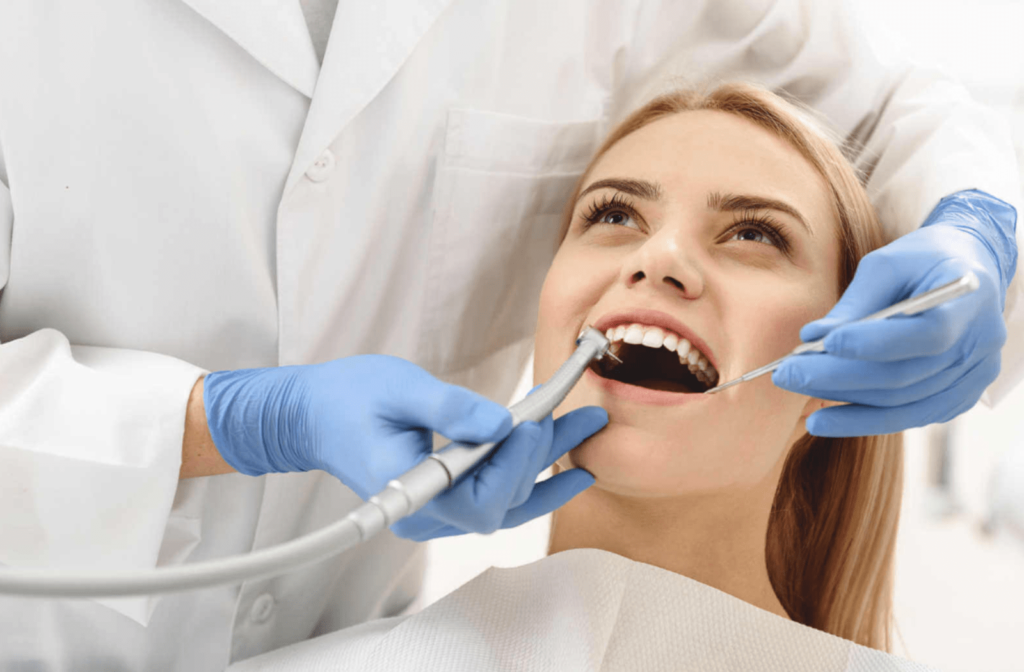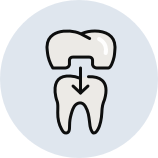Brushing and flossing should be regular at-home oral care habits. However, that doesn’t mean your teeth and gums are safe from tooth decay and gum disease.
Regular dental checkups and teeth cleanings for adults and children can ensure healthy gums, bright smiles, and the early detection of cavities and other oral health issues. So, how often should you get your teeth cleaned?
You should get your teeth cleaned at the dentist at least every 6 months. This can vary based on your individual needs and risk of oral diseases.
Many people may feel uneasy about teeth cleaning. But when you know what to expect, you’ll realize it’s simple and relatively pain-free.
Why Teeth Cleaning Is Important
One of the main reasons for regular teeth cleaning is to encourage proactive prevention. The earlier you can detect potential problems, the better you can avoid long-term health issues and costly treatments.
Your oral cavity has more than 700 types of bacteria. Some bacteria, in small quantities, turn sugar from food into acid. When these acid-producing bacteria flourish from not brushing properly, they can eat away at the tooth’s enamel, causing cavities.
Bacteria that thrive near the gumline form a sticky film called plaque. Plaque might appear like a fuzzy feeling on your tongue. As the plaque accumulates and hardens on the tooth, it becomes more difficult to remove by brushing and can cause gingivitis or gum disease.
Teeth cleaning is not only important for dental health; it’s also essential for overall health and well-being. Dental cavities and gum disease have been linked to health conditions such as heart disease, cancer, and diabetes.

How Often Should You Get Your Teeth Cleaned?
Going to the dentist every 6 months can help to detect problems, sometimes even before symptoms develop. However, professional teeth cleaning can be done every 3 to 6 months or as per the schedule recommended by Outdoor Dental.
Your dentist may recommend a frequency based on your:
- Age: Children and older adults may need their teeth cleaned more frequently.
- General oral hygiene habits.
- Diet: You may require more frequent cleanings if you consume more sugary and starchy foods.
- Medications: Some medications used for various conditions may increase the frequency requirements for teeth cleaning.
- Your risk of gum disease: If you have diabetes, smoke, or have a family history of gum disease, you may be at a greater risk.
If you experience the following signs, regardless of your last cleaning appointment, visit your dentist immediately:
- Bleeding or swollen gums
- Sensitivity to hot or cold foods or drinks
- Pain
- Loose teeth
- Receding gums
What Does Teeth Cleaning Involve?
Generally, teeth cleaning involves removing plaque and tartar build-up in hard-to-reach areas, polishing, and fluoride application.
Cleaning
Scaling is a part of the cleaning process where tartar and plaque are removed from your teeth. The dental hygienist scrapes plaque from difficult spots, including the back, between teeth, and below the gum line.
Polishing
Tooth polishing occurs with a rotating head and dental paste and leaves the teeth glossy and smooth. When paired with scaling, it can remove bacteria from the surface of teeth and leave your teeth feeling squeaky clean.
Fluoride
Fluoride treatment provides optimal oral protection as it’s a natural mineral that strengthens enamel and prevents cavities. To ensure you receive the maximum benefit from a fluoride treatment, your dental hygienist may recommend the following:
- Avoid food or drink for 1 hour after fluoride treatment.
- Avoid brushing or flossing for at least 4 to 6 hours after fluoride treatment.
- Avoid hot drinks or alcohol for at least 4 to 6 hours after fluoride treatment.
Caring for Your Teeth Between Cleanings
Besides professional teeth cleaning, good oral hygiene habits are crucial for maintaining healthy teeth and gums. Here are ways to ensure a healthy mouth between cleaning appointments:
- Brush your teeth for at least 2 minutes twice daily.
- Floss at least once daily.
- Brush with fluoride toothpaste.
- Replace your toothbrush every 3 to 6 months or when bristles fray.
- Use a quality mouthwash to keep bacteria at bay and your breath fresh.
- Maintain a healthy diet.
- Drink lots of water.
Professional Cleaning for Healthy Teeth & Gums in Calgary SE
If you haven’t had teeth cleaning in the past 6 months, book an appointment with our team at Outdoor Dental. Once we’ve discussed your medical history and accessed your oral health, we can help recommend a cleaning frequency based on your specific needs.













